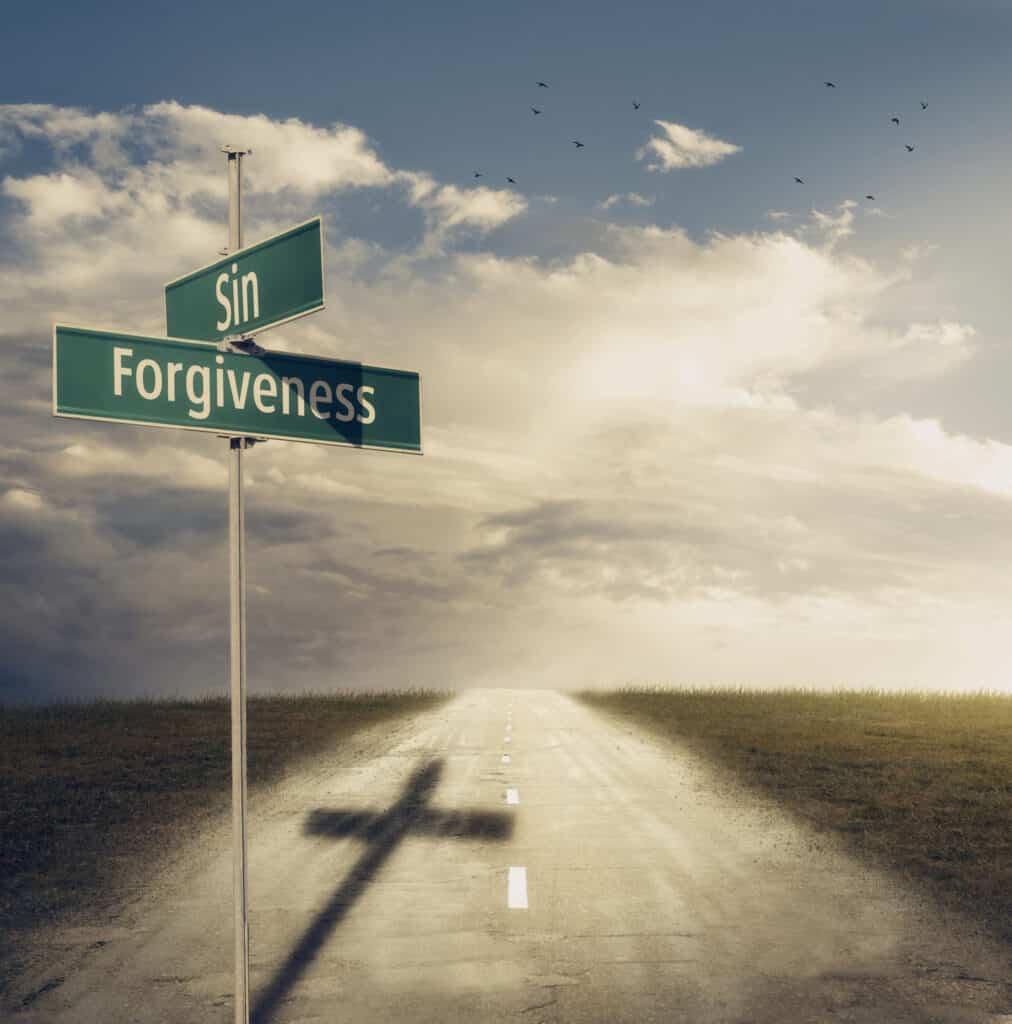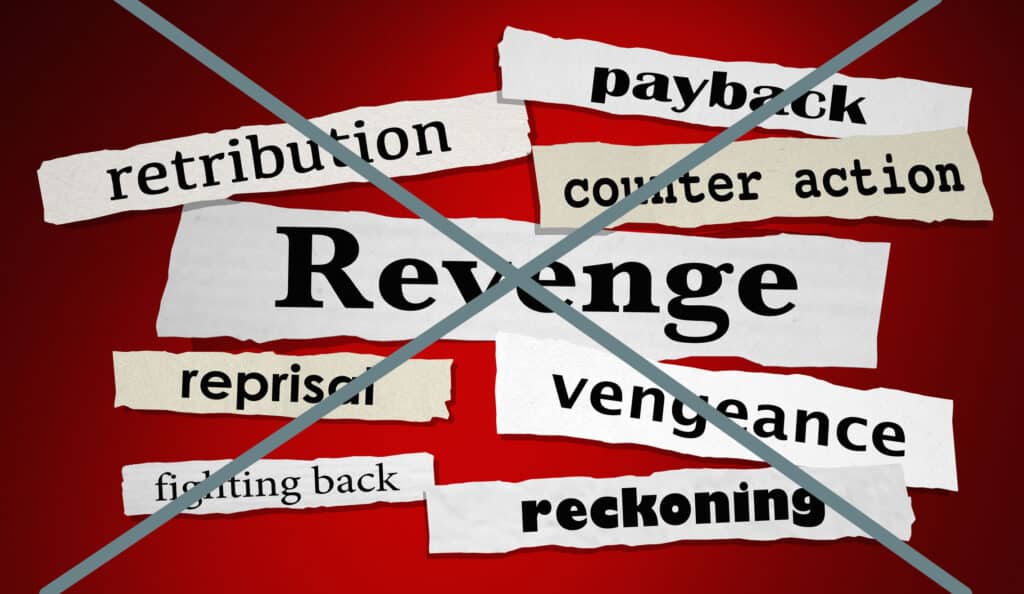
We’ve all heard about how important it is to forgive people. It helps us move on and grow, and it’s a wonderful way to demonstrate the love and mercy of Jesus in our lives.
But sometimes, it’s hard. Really hard.
Sometimes, it almost feels impossible.
So how exactly do we go about this forgiveness process—especially if we’re still hurting?
The good news is, God doesn’t make us do this on our own. He knows we need His Holy Spirit’s help.
And it’s okay if it takes time. Most important things do. What matters most is that we make the decision to forgive.
As for what happens next, let’s break things down into steps
- Reminding ourselves what forgiveness is (and what it isn’t)
- Remembering why forgiveness matters
- The action steps:
- Drawing our strength from God
To get things started, it’s always good to review exactly what we’re trying to do and why.
Reminder—what forgiveness really means
The world often encourages us to get even with people when we’ve been wronged. In short, that’s repaying evil with evil. The Bible, however, has a very different set of rules:
Be kind to one another, tenderhearted, forgiving one another, as God in Christ forgave you
Ephesians 4:32, ESV
Forgiveness means releasing bitterness or ill will toward someone because of something they’ve done. Forgiveness doesn’t happen because it’s deserved, but because it’s an act of love. It’s done so both you and your wrongdoer can move on.

But forgiveness does not mean the removal of consequences or an instant restoration of trust and accountability. Even though the Bible is full of instances of God forgiving people of their sins, natural consequences usually remain (2 Samuel 12:7–22; Luke 15:11–24).
Reminder—why forgiveness matters
While it can feel so natural to mistreat and mistrust those who’ve hurt us in the past, God openly expresses that if we’re to grow in a relationship with Him and display His character to others, that includes embodying His mercy (Matthew 5:24; 18:21–35).
We forgive others because God forgives us even though we don’t deserve it (Colossians 3:13).

That’s also why there’s no room for personal vengeance or grudges in God’s kingdom. God asks that we leave that to Him (Deuteronomy 32:35; Romans 12:17–19). He promises to make everything right (Isaiah 2:2–4). After all, He’s the only one that’s truly able to do that.
We see this quality in David during the lengthy conflict between him and King Saul. Saul distrusted David, fearing that he could steal his kingdom away from him.
He tried to kill David, hunted him constantly, and drove him into the wilderness. But through it all, David refused to lay a hand on the king God had chosen. Although he had multiple opportunities to kill Saul and get away with it, David refused to take vengeance on him (1 Samuel 24:1–22; 26:1–25 ).
David gave up his desire for vengeance, trusting that God would protect him and give him justice in His own time. That’s how God’s system works. We are to love and forgive others and leave retribution in His hands, rather than trying to make our own justice. This is what Jesus meant when He commanded us to “love your enemies” (Matthew 5:44, ESV).
It’s not hard to see the amazing love of God come through in these stories. And it’s not even that difficult to see why forgiveness is so important—especially if we claim to be followers of Jesus.
But still…how exactly do we do this? Especially when we’ve been hurt deeply?
The action steps involved in forgiveness

The first thing to remember is that forgiveness is not just about the person who hurt us. It’s a process meant for our own growth. It allows our own wounds to heal.
And this healing can only be done in full through God’s power. In God’s presence, there is forgiveness (Psalm 130:3–4). Enough to allow us to live past our greatest pains and disappointments.
Here’s what Pastor Sam Neves, Associate Director of Communication of the General Conference of Seventh-day Adventists, recommends for the process of forgiving others. And they must be done in order:
Acknowledge the pain
It’s necessary to recognize that we were indeed hurt. Then, we need to clearly define what happened, how and why it hurt us, and identify the emotions we experienced (and are often still experiencing).
Once the wound is clearly visible, we can work on healing it.
Sometimes, this involves going to the person who hurt you and letting them know. Matthew 18 provides an outline for how to handle such conversations:

If your brother sins against you, go and tell him his fault, between you and him alone. If he listens to you, you have gained your brother. But if he does not listen, take one or two others along with you, that every charge may be established by the evidence of two or three witnesses. If he refuses to listen to them, tell it to the church. And if he refuses to listen even to the church, let him be to you as a Gentile and a tax collector
Matthew 18:15–17, ESV, emphasis added
This is an ideal principle to follow, although there are situations where it’s not wise or safe to meet with the person who wronged you.
However, the understanding of one another’s views and feelings can sometimes happen through the use of an intermediary. This can be helpful in clearly defining what went wrong, why it was wrong, and how reconciliation might be made.
Put away all thoughts of getting back at the wrongdoer

After what happened to us has been identified and defined, then the real work begins within us.
Payback and vengeance are not biblical principles, and if we are ever to truly forgive someone, we have to banish these notions from our minds.
As it says in Romans, “Beloved, never avenge yourselves, but leave it to the wrath of God, for it is written, ‘Vengeance is Mine, I will repay,’ says the Lord” (Romans 12:19, ESV).
Here are a few things to remember when following these steps:
- Forgiveness does not mean that the wrongdoing somehow becomes less wrong or less important. It means that we have stopped allowing that wrongdoing to hurt us and that we are no longer harboring ill will toward the wrongdoer.
We may never be able to trust that person again, under some circumstances. But we’re allowing God to help us move on from what happened.
- Forgiveness is more about our own healing and redemption than it is about the person who hurt us. As hard as this might be to accept, that person may never ask for forgiveness. They may go their entire lives without knowing they ever hurt us. And yes, that can make things hurt even more. But even so, we are called to forgive them—for our own good.
- Forgiveness is mostly an internal process. In some cases, we may not be able to tell the other person that we forgive them. It may not even be a good idea to see them, in some cases. It could be possible that they don’t want our forgiveness.
Thankfully, the forgiveness process doesn’t depend on them.
Things may not go back to the way they were, and broken bonds may never be mended, but our hearts will still be lighter and more loving when we surrender our pain to God.
And when we do, our happiness and well-being don’t have to depend on another person. Through this prayerful healing process, we’re taking away another person’s power to continue hurting us. God liberates us.
But to make this all work, we must keep this important reminder at the front of our minds:
Bring our troubles to God. Without His presence and power, we would be enslaved by our grudges, chained to the endless string of wounds we’ve received over a lifetime.
But with God’s power, we can be cut free from all that anger and pain and given a new life.
Here’s how to do that.
Drawing our strength from God

To be able to rely on God’s strength and guidance, we first need to bring everything to Him in prayer. And it can simply start with, “God, help me. This is really hard. But I know You can be my source of strength.”
And as we pray, we can meditate on the fact that forgiveness is part of God’s character, since God is love (1 John 4:8, 16). That’s why He invites us to use His strength to accomplish forgiveness in our lives. It transforms us while it also reflects the character of Christ outward.
You can go into this knowing that the God of the universe, the Creator of all humanity—your Creator—already wants to help you with this.
And if you need to, remind yourself that you are valuable to God, and you are also worth forgiving. And there’s nothing you could ever do to make God not want to forgive you and draw you back toward Him (Romans 8:31–39).
(Because, sometimes, it can be even harder to forgive others if we have a hard time forgiving ourselves.)
But as we deepen this belief in our hearts, we tap into the strength to accept the boundless forgiveness God gave us. And to offer it to other people—whether they ask for it or not.
When we stop trying to bear the burdens of our pain and disappointment on our own, when we place our suffering into God’s hands, we are set free.
Free to heal and free to show this incredible kind of love to others.
That pain is no longer our own, and so it no longer has to hurt us.
In a way, we’re given permission to let it go. It’s like God saying, “It’s okay. I’ll carry it from now on.”
We also let go of the “right” to take revenge because of it. We place all of that responsibility on God, knowing that all things will one day be made right.
That’s what forgiveness means. It means taking strength from God so that we might move past the wounds we receive and allow others to do the same.
On our own, this would be an impossible task. But with God’s love to strengthen us, we can choose forgiveness every time.
Want to learn more about how God’s forgiveness relates to the plan of salvation? Start your own online Bible study.